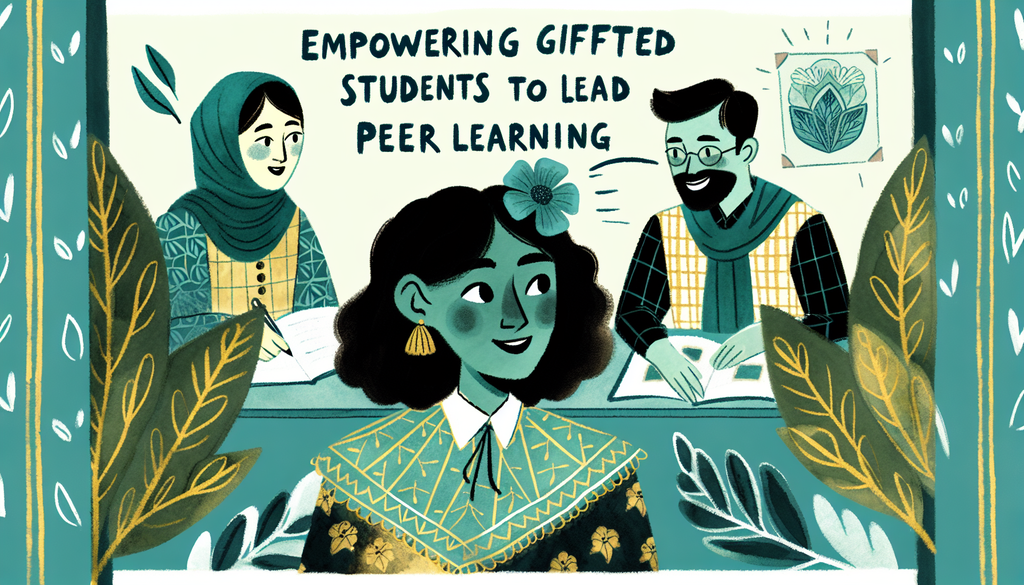Empowering Gifted Students to Lead Peer Learning

In many learning environments, the focus tends to be on helping each student reach their individual potential. This is laudable, but an equally significant consideration is how we can encourage gifted students to become leaders and positively impact their peers’ educational journeys. This blog post explores how we can foster a culture of inclusive leadership among gifted learners and how this can play a pivotal role in enriching the academic setting for everyone.
The Inherent Leadership Qualities of Gifted Students
Often, gifted students exhibit qualities that align with leadership roles. Their quick comprehension, innate curiosity, capacity to assimilate and apply learning, as well as their inherent drive can all credibly translate into leadership. By structuring opportunities for these students to guide peer-learning experiences, we leverage these traits for the collective benefit of the class while providing development opportunities for our gifted students.
The Benefits of Peer Learning
Before delving into implementing peer leadership, it’s important to understand why peer learning is essential. Peer learning benefits all students by facilitating insight into alternative perspectives, developing social skills, building a sense of community, and augmenting student engagement. We discussed these benefits further in our post on Exploring Differentiated Instruction in the Classroom.
Harnessing Gifted Students as Peer Leaders
Here are some strategies to encourage gifted students to take on a peer-leadership role:
Group Projects
Assign mixed-ability groups for projects, allowing for diversified perspectives and opportunities for each student to contribute their unique strengths. Gifted students can take lead roles, facilitating the flow of ideas and ensuring that everyone is heard.
Tutoring Sessions
Gifted students can lead small tutoring sessions or study groups in their areas of strength. This environment offers peer support to those who may have difficulties in these areas. It also helps gifted students consolidate their understanding as they articulate concepts to others—a phenomenon often referred to as the ‘protege effect’.
Enrichment Activities
Extra-curricular and enrichment activities provide an ideal avenue for gifted students to nurture their leadership skills. Whether it’s leading a club meeting, coordinating a school event, or spearheading a community project, these roles offer real-world leadership experiences. Check out our post Fostering Creativity: Enrichment Programs for the Gifted Learner for more insights on enrichment activities.
Classroom Discussions and Debates
Gifted students can moderate class discussions, encouraging peers to share their opinions and fostering a culture of respectful debate. This also assists in developing their critical thinking abilities, a concept we have talked about in Intelligent Debate: Fostering Critical Thinking in Gifted Youth.
The Importance of Teacher Facilitation
While gifted students can take on leadership roles in peer learning, it needs careful management from teachers. The goal is to foster a balanced and inclusive environment where each student feels valued. This might include structured training, clearly defined roles, providing constructive feedback, and ensuring that leadership responsibilities are rotated to give all students the chance to lead and learn. Exploring Maximizing Potential: Enrichment Ideas for the Classroom can provide additional ideas and strategies.
In conclusion, capitalizing on the leadership potential of gifted students in peer learning contexts can truly be a win-win situation. It benefits gifted students by providing opportunities for enhanced learning and leadership skill development and simultaneously enriches the learning environment for their peers.